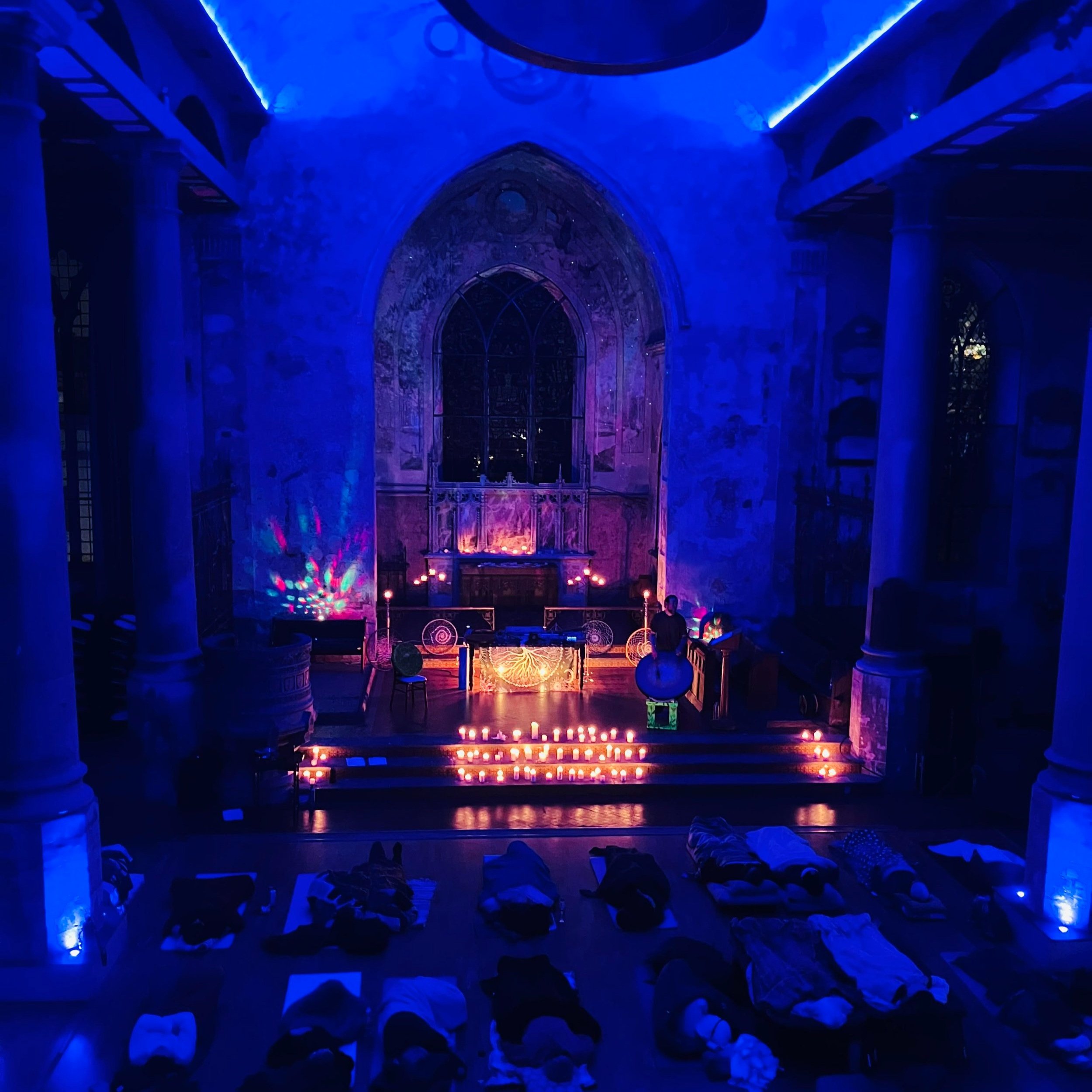Sound Therapy: Healing Trauma from Northern Ireland's Conflict
Growing up in Northern Ireland during what's often euphemistically called "the Troubles" - a term I avoid as it minimises what was, in reality, a war - shaped my perception of safety in ways I'm still unraveling. The British media not only downplayed the severity of the conflict but also over-simplified its complexities, failing to capture the nuanced reality we lived daily.
For those of us living through it, the impact was soul-deep and inescapable. It didn't just shape our understanding of safety or normalcy - it rewired our entire perception of reality.
Every loud sound, every stranger, every misplaced object became a potential threat. It was a world where hypervigilance wasn't just a survival skill, it was a way of life.
What I share here is just a fraction of the experiences that marked those times. Each person who lived through this period carries their own unique set of memories and impacts. My story is one among many, and while significant to my journey, it's important to recognise the collective trauma that entire generations endured.
This is a small part of my story in how the hangovers of war-torn Northern Ireland led me to discover the power of sound in soothing a hypervigilant nervous system.
Childhood Trauma and PTSD: Growing Up in Northern Ireland's Conflict
The doorbell rang this morning. Didn't jump out of my skin this time. Progress. Still, my heart raced for a few moments after. Growing up in Northern Ireland, a ringing doorbell meant danger. Could be gunmen. Now it's just a delivery person with my package. Logically, I know this. But my body? It sometimes has other ideas.
Last week I saw an abandoned box under a car on my walk. I didn't run, but I definitely walked faster. I remember one particular day (of many) when we couldn't go to school because of pastries. A box of them was left under a car, and suddenly the bomb squad's there, cordoning off the streets. We stayed home, equal parts relieved and uneasy. No maths, sure, but also... pastries as a threat? It was absurd. Later, we'd joke about it. "Explosive éclairs" and "terrorist tarts". Not because it was actually funny. It was our way of dealing with the madness of it all. That dark humour - it's a Northern Irish specialty, born out of necessity.
The Body Remembers: Trauma Affecting the Nervous System
Thinking back to those soldiers with machine guns on our streets. It's jarring when I consider it now - how their presence was 'normal' to me as a child, as it was all I ever knew. Even more unsettling? How their absence left a void, a sense of vulnerability. It wasn't natural, not by any stretch. But my young nervous system had adapted to this bizarre reality, highlighting the body's remarkable - and sometimes problematic - capacity to normalise the abnormal when constantly exposed to it.
This understanding - of how profoundly our environments shape our sense of safety - has become a cornerstone of my work as a sound therapist. I've seen how these patterns can embed themselves deeply in our psyche and physiology, and how gently we need to approach the process of unlearning them. It's a delicate dance, helping the nervous system rediscover what true safety feels like.
These experiences weren't isolated incidents; they were the backdrop of our everyday lives, a constant hum of tension that underscored every moment. The perpetual state of fight-or-flight became our twisted version of normal.
“Sharing even these small parts of my story isn’t easy. There’s so much more that remains unspoken, so many experiences that have shaped who I am. But I believe in the power of breaking the silence. As a trauma survivor that’s become a sound therapist, I hope that by opening up about my journey, I can reach others who’ve been through similar experiences. ”
Understanding Complex PTSD: When Everyday Stress Becomes Trauma
However, it's crucial to understand that trauma isn't always about these dramatic, headline-grabbing events.
Many of us experience what's known as Complex PTSD (C-PTSD), which develops from prolonged exposure to chronic stress or repeated traumatic events.
This could be from growing up in a dysfunctional family, experiencing ongoing workplace stress, or being in a toxic relationship. These seemingly 'everyday' experiences can leave deep, lasting imprints on our nervous system and overall well-being.
My Irish Heritage: Healing Roots in Troubled Soil
Growing up, my relationship with my Celtic heritage was complicated. My Nana's words stayed with me: "Don't let anyone tell you you're not Irish." In a land divided, where new identities were being forged from old conflicts, many of us struggled with who we were. The Protestant-Catholic divide added to my confusion, but my Dad's stories from rural Tyrone planted seeds of connection that would later flourish.
As a young person, I couldn't wait to leave. The trauma of my early experiences overshadowed any positive feelings about where I came from. But healing has a way of shifting perspectives. As I've worked through my own trauma, I've found myself drawn back to the myths and legends of my childhood. Now, working with the land—even from afar—has rekindled a sense of pride in my heritage that I never expected to feel.
Today, I weave elements of Celtic culture into my sound therapy practice. Celtic tree moon sound baths and the rhythms of the Celtic wheel have become powerful tools in my work. Drawing upon nature and folklore, I've found a way to support healing that feels deeply authentic to who I am.
There's wisdom in trauma, and there's wisdom in our ancestral traditions. Bringing these together in my practice has allowed me to connect with my culture in a positive way for the first time as an adult. It's brought me closer to the land, to my ancestors, and to parts of myself I had long neglected.
Using these elements of my culture in healing work isn't just about helping others—it's continued to heal me, too. It's a reminder that even from the most challenging beginnings, we can find paths to wholeness and connection.
Unlearning Hypervigilance: The Struggle to Adapt to Peace
While my cultural heritage provided a sense of comfort and continuity when I started my healing journey, adjusting to life outside Northern Ireland brought its own set of challenges. Another stark reminder of my unusual upbringing came when I left for university when I was 19.
I remember the shock of seeing police stations with glass windows and doors you could simply walk through. In Northern Ireland, police stations were fortresses – protected by high walls topped with barbed wire, watchtowers manned by vigilant officers. The openness of these new police stations was both a relief and deeply unsettling. It took me ages to adjust, to accept that this level of accessibility was normal in peacetime.
The hypervigilance I'd developed didn't simply vanish when I left Northern Ireland. Instead, it seeped into everyday activities in unexpected ways.
Back home, riding in cars had been a source of constant anxiety. We'd take different routes to school each day, always on the lookout for potential threats. Seatbelts were a no-go – we had to be ready to duck if shots were fired. This ingrained fear is probably why I never learned to drive. Even now, years later and miles away, I sometimes feel that old unease creeping in as a passenger.
This heightened state of alertness, deeply ingrained in me, found new triggers in the most mundane places of my new life. It showed me that healing from trauma is a complex process. It unfolds gradually, often surprising us in unexpected ways.
Sound Therapy: A Path to Healing
For years, well into my thirties, my nervous system was in a state of constant high alert. But discovering somatic approaches, especially sound therapy, was transformative. The difference is night and day. I still experience the occasional startle response, but now I have the tools to self-regulate when it happens.
Interestingly, I've found that much of my fear was stored in my pelvis, particularly my bladder. This makes sense from a biological perspective – the bladder is connected to our most primal survival instincts. When we're in danger, the body prepares to flee by emptying the bladder to lighten the load. Chronic stress can keep this system continuously activated.
While I've released a lot of the fear through sound therapy, I acknowledge there's still work to be done. But the progress I've made – from jumping at every loud noise to being able to self-regulate in stressful situations – is remarkable.
Though my sound therapy with clients, I have witnessed the remarkable capacity we have to retrain our nervous systems. Combining intention with sound can rewire old patterns. A simple phrase like "I am safe," paired with the right sounds, can have a powerful effect. The vagus nerve responds beautifully to sound vibrations, promoting relaxation and balance.
Breaking the Cycle: Healing Collective and Generational Trauma
My roots in Northern Ireland have given me unique insights into trauma, but my work as a sound therapist in Bristol, England has broadened my understanding even further. I've come to see how trauma, regardless of its origin, often lies just beneath the surface in many people's lives. The need to 'just carry on' isn't unique to conflict zones - it's a common response to various forms of adversity.
This stoicism, while often necessary for survival, can leave lasting imprints. Many of my clients, dealing with a wide range of experiences from Complex PTSD to workplace stress, are still untangling the knots of unprocessed emotions.
Trauma doesn't discriminate. Whether it's from dramatic events or chronic stress, the impact on our nervous systems can be similar. And often, these effects ripple through generations, manifesting in ways we're only beginning to understand.
Book Your Free Discovery Call
Healing is possible. Your body knows the way - sometimes it just needs a little help remembering.
If you’re curious about how sound therapy might support your healing journey, I'm offering free 20 minute discovery calls to discuss how we might work together to bring more balance and calm in your life. During this call, we'll discuss your current challenges, your goals for healing, and how sound therapy might support your journey.













